Sorcery Preview: The Wanderer Returns
Sony's long lost Move adventure is conjured up at last.
When Eurogamer first went hands on with Sorcery, Sony's magical motion-controlled adventure, we described it as "one of Sony's first titles for Move". That obviously didn't happen. After an eye-catching debut at E3, where it was a centrepiece of Sony's Move presentation, Sorcery completely dropped off the radar, prompting speculation that it had been scrapped. Not so. True to its name, Sorcery magically reappeared earlier this year in a puff of PR smoke, having been retooled and reworked as the vanguard of Move's second wave of titles.
The gameplay, however, hasn't really changed at all since its original aborted debut. You still control Finn, a cocky young sorcerer's apprentice with a typical disregard for sensible advice, as he battles a variety of fantastical monsters and supernatural threats, using the Move wand as a wand.
The motion-controlled spell casting is delightfully intuitive as well. A flick of the wand sends your spell on its way, with an obvious touch of automated aiming helping to bridge any gaps between your intentions and the hardware. Context sensitive moments add new tricks to your arsenal - an upwards flick to levitate obstacles out of the way, or a flamboyant swirl to repair broken bridges - without cluttering up the controls with too many arcane movements.
If the game has a weakness at the moment, it's that combat quickly becomes repetitive and, in the early stages at least, the game too often falls into the Gears of War template, leading you from one arena to the next and blocking you in until you've dispatched the required number of foes. With such relentless combat, the wrist-flicks required to spam spells at the encroaching enemies can become a good way to simulate the joys of carpal tunnel syndrome. This isn't helped by the fact that even while simply wandering around, you'll be zapping crates and other objects to earn gold and other trinkets which can be cashed in with a comedic dwarven trader for potion ingredients.
Variety comes mostly from the spells at your disposal, starting out with a simple arcane bolt that whips out from your wand and clobbers whatever it hits. More elemental attacks can be unlocked as you progress but you can also use the environment to augment your basic spells. Shoot an arcane bolt through an open flame, for example, and it becomes a fireball. Finding ways to give yourself the advantage in this way adds an enjoyable layer of strategy that means the pew-pew-pew pace of the combat shouldn't become too exhausting.
You can also instantly create a magical shield by holding L2, while the X button used in combination with the left stick sends Finn tumbling out of danger. The game handles the camera for you, instantly locking you into a strafing view when enemies are around, and keeps you on track by stopping you from falling off even the simplest ledge. This can lead to the game feeling a little claustrophobic, especially if you're fighting in an area with ramps and steps that can box you in, but it means you can strike a workable compromise between freedom of movement and Move control, without feeling you're being penalised or patronised.
The big change has come in the visual style, which has ditched the cartoony-style Hogwartery of its original incarnation in favour of a more stylised look. It's all immensely charming, calling to mind Fable and Codemasters' sorely underrated Overlord series. Locations run the expected gamut from bright countryside and gloomy crypts to quaint towns and ominous mountains and while there's not much freedom to roam, there are enough gentle environmental puzzles and hidden chests along the way to ensure that these are more engaging than simple pathways to the next fight.
The gothic Harry Potter-esque music has been swapped for a more folksy medieval soundtrack and the story, too, is enjoyable once you get past the obligatory "dumb kid unleashes terrible evil" opening section. Finn's companion, a feisty faerie princess turned sarcastic talking cat called Erline, not only keeps the plot moving but acts as an excellent guide, nudging you in the right direction by sitting near useful pathways and offering verbal hints as to what you should do. The voice acting is lively and the writing strikes the right balance between the sort of snappy banter a modern audience expects and taking its own fantasy world seriously enough to feel like it matters.
Where Sorcery excels is in combining motion control with a gameplay style that gamers will feel comfortable with. There's none of the weightlessness that blights Kinect games, while the motions are more responsive and convincing than anything the Wii can handle.
On the basis of the game's first few hours, it's shaping up to be a pleasant bit of spell-chucking fun. The lingering question, of course, is whether "pleasant" and "fun" will be enough to overturn the perception that the PS3 has lost its momentum in the motion gaming arena.
Sony has made a point of reminding us that Move has been successful, to the tune of 10.5 million units shipped, but it's hard to deny that the hardware simply hasn't maintained the same profile as Kinect. For better or worse, Microsoft has kept its sensor visible, heavily marketed, supported by high profile family titles and integrated it with the Xbox 360 with great success. Move, on the other hand, hasn't had a dedicated title in months, and while Sorcery has been overhauled to make it look less like a kid's game it still plays a lot like one.
Will Sorcery's whimsical charm be enough to revive interest in Move as an ongoing platform? Had it come out in 2010, it would have been an excellent showcase for the hardware's strengths and things may have turned out very differently. Whether it can conjure up a similar success story in 2012 will be interesting to see.
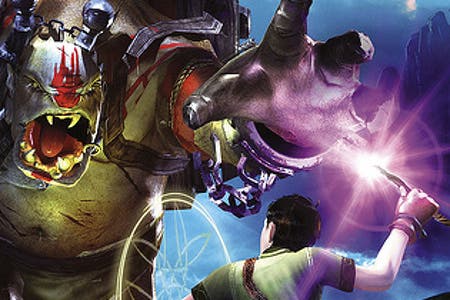

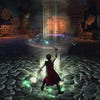

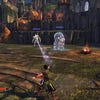


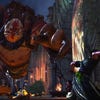

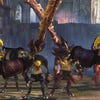
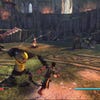
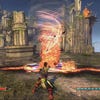



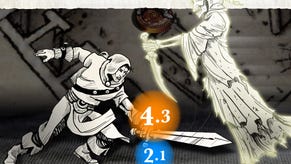

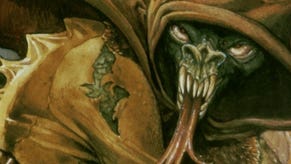
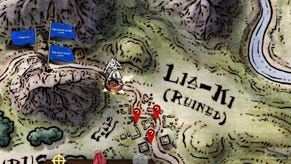
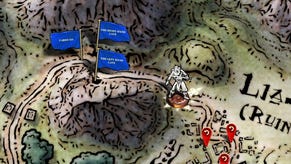


.png?width=291&height=164&fit=crop&quality=80&format=jpg&auto=webp)




.jpg?width=291&height=164&fit=crop&quality=80&format=jpg&auto=webp)
